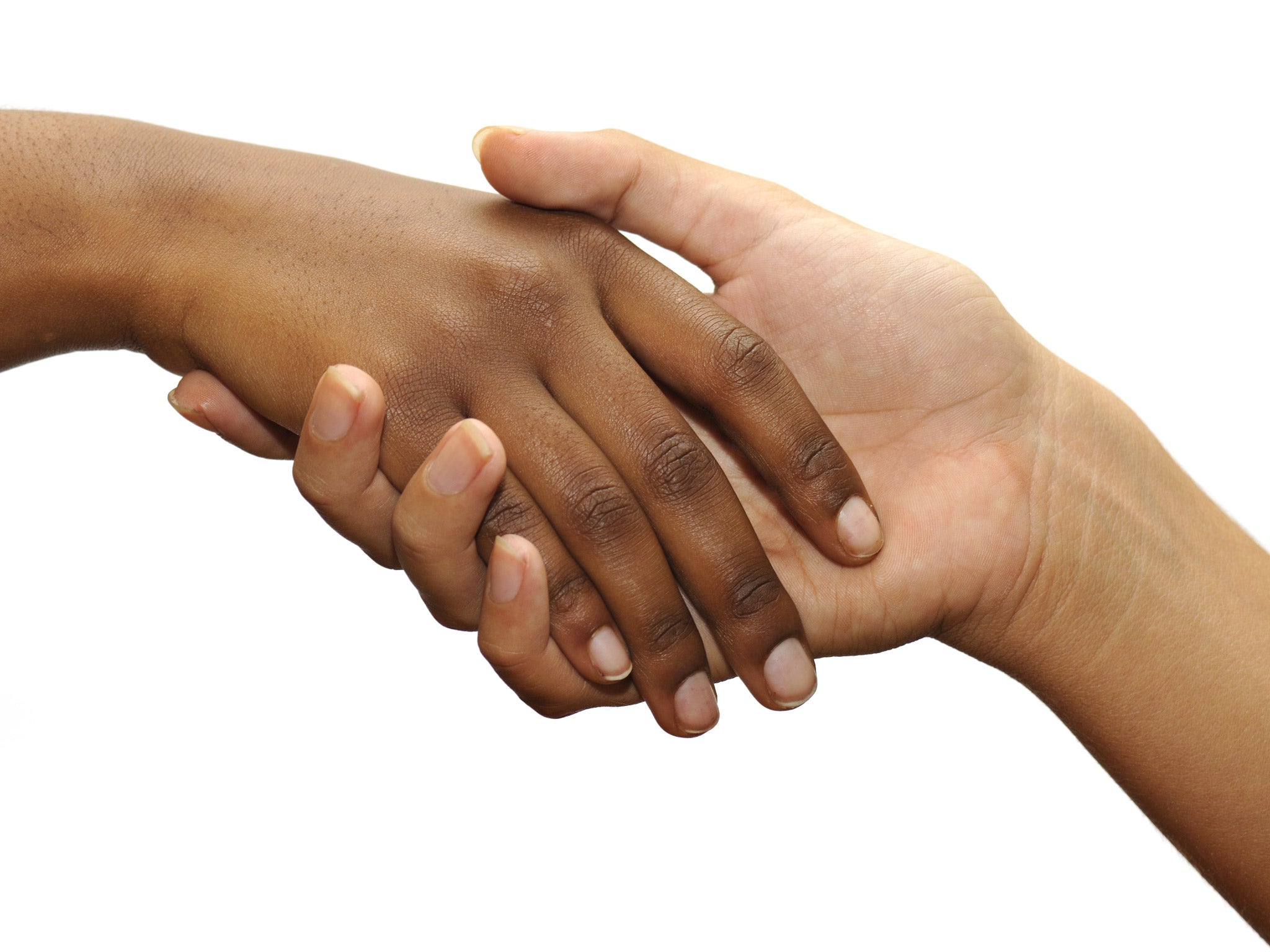Only one in 10 Britons has best friend of different race
Survey reveals extent of social segregation in UK – along both ethnic and class boundaries

Just one in 10 Britons has a best friend from a different ethnic background, according to research which reveals that racial segregation is still a major issue in the UK.
The polling for The Challenge Network, which aims to encourage integration through youth and community groups, found that Britons are in fact 8 per cent more likely to have no best friend at all than one of a different ethnicity.
Craig Morley, the organisation’s chief executive and co-founder , said: “As UK communities become increasingly diverse, there is a very real danger they actually become more segregated. We need policies that actively promote integration, rather than foster segregation and ultimately lead to greater social isolation.
“We rightly celebrate the rich mix of people and culture in this country, but when you dig a little deeper you find that vast numbers are living parallel lives and interacting only with people very similar to themselves.”
The research also showed how people are still separated by education – and by extension, class – as 99 per cent of UK adults that went to state school have a friendship group who all went to state school as well.
Sarah Mulley, associate director for migration at the Institute for Public Policy Research (IPPR), said: “There is clearly a concern that people don’t mix, either across ethnic lines or class lines, as you might expect, if you think how mixed, particularly, our cities are.
“The question is what do you do about it, if anything? Government policy has been much too focused on citizen tests and what it means to be British – and not enough on the practical and everyday. There are agonised discussions about what the questions in the citizen test should be, but [discussions aren’t being had] about the way in which communities and relationships are built.”
The polling of more than 2,000 adults also found that two thirds of Britons believe that programmes which bring young people from different backgrounds together, outside of the schools environment, are important.
The figures about friendship across races were the same in adulthood and childhood. Just 10 per cent of British adults had a best friend from a different ethnic background when they were at school, the same proportion as in adulthood.
But Sunder Katwala, director of the British identity and integration think tank, British Future, was sceptical about whether these figures showed segregation was something of concern in Britain. He said: “We know for a fact that there’s increasing ethnic contact in Britain. The best evidence of that is the doubling in the number of people of mixed ethnicity.”
He added: “In a country that’s 86 per cent white and 80 per cent white British, the important question is about broader friendship groups.”
Ben Gidley, senior researcher at Oxford University’s Centre on Migration, Policy and Society, said: “I think the evidence points to the trend of every ethnic group moving away from segregation and towards mixing. That’s true for almost every ethnic group. The big exception to that is among white British people, who are less likely to mix than they were a decade ago.
Dr Gidley added: “The school issue is interesting, because the ethnographic research I’ve done in London suggests the barriers along class lines are growing as race barriers are decreasing.”
Case study: ‘When I went to college, I tried to be diverse’
Frank Forrester, 17, from Croydon, south London, did not have many non-white friends when he was growing up. Although he went to a diverse school, he said people usually hung around in “single-race groups”. It was only in college that he formed more friendships with people from different ethnic backgrounds. He said it had a “massively positive” effect on his life.
“When you’re younger you try and find people who are similar to you; it’s easier and less stressful. But when I went to college, I tried to be more diverse. Now a lot of my friends are Asian, or from Middle Eastern backgrounds. You have more interesting conversations and you feel more accepted.”
Sarah Morrison
Join our commenting forum
Join thought-provoking conversations, follow other Independent readers and see their replies
Comments